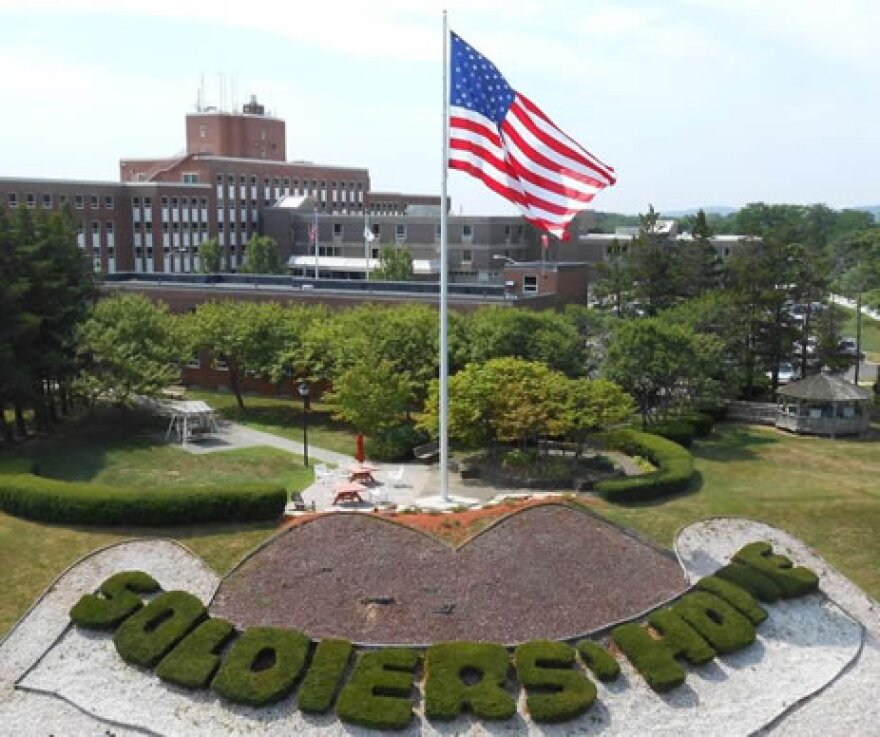Almost two years after the tragedy at the Holyoke Soldiers’ Home where at least 76 veterans died during a COVID-19 outbreak, the Massachusetts legislature is moving closer to reforming the management and oversight of the long term care facility.
The State Senate Thursday unanimously passed legislation. There are significant differences, however, between the Senate bill and one that passed the House. A conference committee will attempt to produce a final version that both chambers can agree on.
WAMC’s Pioneer Valley Bureau Chief Paul Tuthill spoke with John Paradis, a founding member of the Holyoke Soldiers’ Home Coalition of veterans’ advocates and family members.
John Paradis
We support the Senate version. It is a major improvement over the House version. And we strongly hope that the House adopts a amendments that were done with great diligence, in our opinion. And, and we support the Senate version. And we're very grateful for all the hard work that was put into the Senate version. We've said all along that at the end of the day, we expect that our elected officials listen to the people who are most affected and impacted by the decisions they make, and the laws they enact. And what ultimately, the General Court passes, and the governor signs into law is going to affect all of us as veterans and our family members for the rest of our lives. And so we want a seat at the table. We want our voices heard. We want to be listened to and we want to be part of the process. And we believe strongly that this Senate version gets us to that point.
Paul Tuthill
Why is the Senate version stronger than what the House has passed?
John Paradis
The Senate version significantly tightens and clarifies the chain of command from the superintendent to the Secretary of Veterans Services to the governor. We believe that's key, it's it's very clear, I mean, the buck stops here, with with that chain of command, there's no doubt in anyone's mind who's in charge and who's responsible and who will be held accountable. That is something that we emphatically called for that the chain of command needed to be much more efficient and effective. The other key part to this bill, is that it requires the two homes to be licensed as is any other skilled nursing facility. In our state. There'll be subjected to twice yearly inspections. The requirement for DPH licensure for the two facilities ensures that they'll have to adhere to all the state DPH guidelines, all the laws required by any long term care facility in our state. And that's another one that we we, we firmly believe that is so necessary at the end of the day, when one of our loved ones is requiring skilled nursing in a facility, you want to have that peace of mind and comfort that every applicable law is, is covered and adhere to and this is a key provision in the Senate version that we believe was necessary. And there are many other amendments that we believe improve the governance of the home. And, and most importantly, for us, we wanted a seat at the table. So the creation of regional councils at both homes in which there will be for the first time a veteran Resident Representative and a family member of a veteran resident, seated on these two regional councils to us, just affirms everything we've been saying about making sure their voices are heard, and he had a seat at the table.
Paul Tuthill
Well, one of the one of the points that came up over and over again, in the in the in the various hearings that have been held was a complaints by by family members of a lack of communication with with the soldiers home, they simply didn't just didn't know what was happening there is is that taken care of by this legislation?
John Paradis
I think it gets us there in a much more demonstrable way than any you know, previous structure reiteration. You know, I mean, the family members are absolutely correct, you know, the there needs to be a chain of command that works for them. That doesn't work for the system doesn't work for political interest. And I think you know, to to a person, the family members with our coalition have stated that they've never felt heard and they never felt like They've gotten the attention to the questions they've asked for. And, and at the end of the day, that's that's the most important thing. When you when you think about care in a medical facility, as as a patient as a family member, you just expect answers you expect that your loved ones are going to be cared for in a proper, dignified manner. And that you're part of, of the care team. And they, you know, I think this legislation will hopefully get to that point where it restores their trust and faith in in the care that is being delivered to their loved ones.



